"Fire in the hole!": dumbest mistake military expressions
Categories: World
By Pictolic https://pictolic.com/article/fire-in-the-hole-dumbest-mistake-military-expressions.htmlTo kill the joke, to turn a strategist in the idiot and the war a farce. All this on the shoulder of the translator of films and books. About the incidents of transfer and expression of the English language, which is not so easy to shift to Russian in our material.
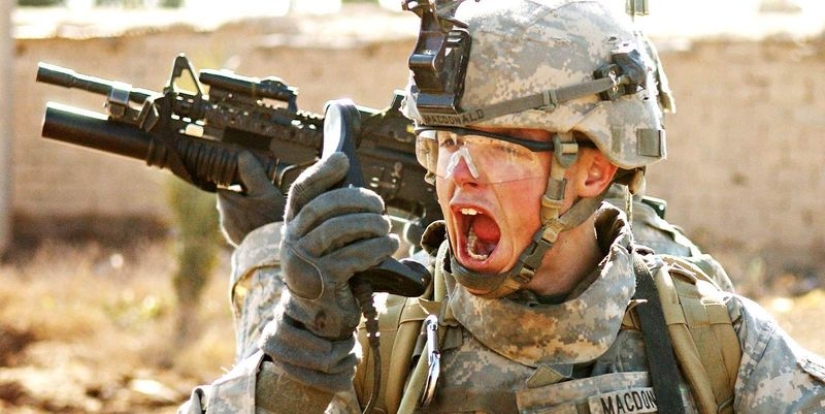

Who is Roger z?
Movie of the nineties could leave the impression that in any formation of the us army definitely is a guy named Roger. And that Roger loves to communicate, especially by radio. The name we knew him: zed, of course.
In fact, the expression That Roger banal means "accepted". That is, all that was said on the radio up to this point, the interlocutor heard and considered. But "made" in English — Received. And here is Roger? It's in the common first letter "R". In phonetic alphabet identified it as Roger (now uses the name Romeo, but the tradition remains).
There are several legends about who first roared "Roger!", overcoming interference. One thing is clear: the meaning is in the use of sonorous words came only with the spread of radio. Most likely, its popularity is this word must project US Navy Roger, launched in 1941 to support laboratory Massachusetts Institute of technology engaged in the installation and testing of the systems of radio control aviation.
By the way, say that in the localization of video games Call of Duty: Black Ops III team "accepted" has evolved at all in "Amen." Sad.
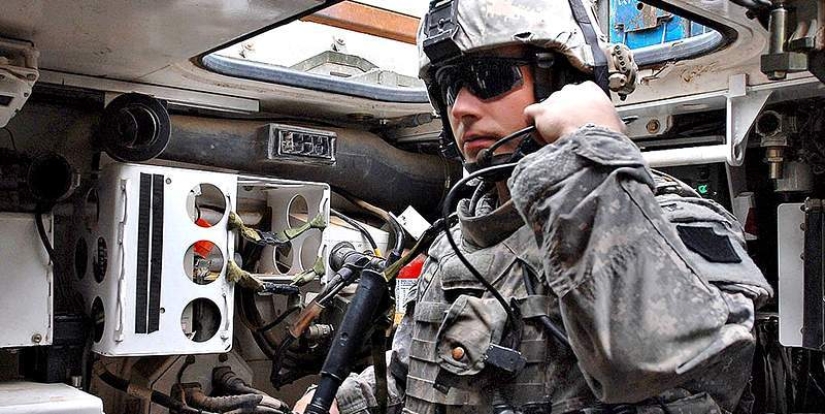
You are the copy
There is another mysterious expression that often occurs in translations when the characters are in talks over the radio. It is more common in the job description, such as police, but the military gets too. It's a strange request "make a copy". Wait and wait: the brave COP will not pull out under the seat cars in the typewriter and begins to print the order.
Copy the expression That is short for "I have copied down your message," that is, "I got your message". Thus, in the statutory context, it should be translated the same "accepted". Civil, so be it, I can say the translation "clear-clear". But if the situation in the film or book close to the military, it again begs the proverbial "accepted". After all, such details of the transfer and create an atmosphere.
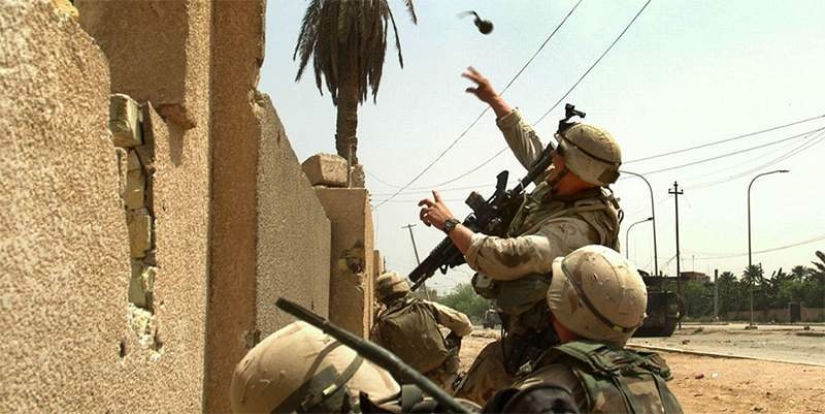
Fire in the hole!
If you then cry to stay in place, that's probably gonna be a hole, and it will fire, but you did not see it. In fact, the phrase Fire In the Hole is a warning about throwing a grenade or any explosion. So, the correct translation is "get Down!" or "it's gonna blow!" In General, something more appropriate than the phrase "fire in the hole" that causes the desire to stand up and curiously look around.
It is believed that the expression originated among the miners. When laying explosives they had to warn friends that now live. From them the phrase migrated to the military, which even those fans to blow something up. Less convincing legend builds story "holes" to the era of guns. Light the wick and loudly warn the comrades that they covered his ears or fell to the ground, depending on the caliber of the "hole".
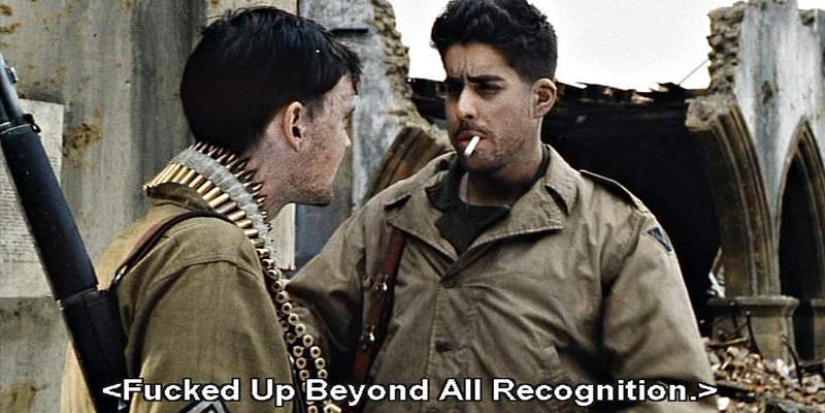
Fubar and Snafu — twins
In the movie "Saving private Ryan" corporal Timothy Upham tried to find out from colleagues what it means to "fubar" (Fubar). Some unlucky viewers, this expression is translated as "polder" (short for "full of shit") and, in some cases, the explanation is hushed, leaving the audience for years in disbelief.
Really is obscene acronym which was invented by the American recruits of the Second world impressed by the military kantselyarita and surrounding reality. As it stands for Fucked Up Beyond All Recognition. That is, if more or less verbatim — "fucked up beyond imaginable". The term can refer to the faulty (very faulty) technique, or the irreparable situation.
A close relative of the "fubar" is a "snafu" (Snafu). This is another useful acronym: Situation Normal: All Fucked Up , or "Situation normal, all fucked". That is, of course, the horror, but the horror, the horror. And as usual in the army.
The last expression even became the name of a character from the animated series about the adventures of privates Snafu, shot Warner Brothers in the years 1943-1945 by order of the U.S. war Department.
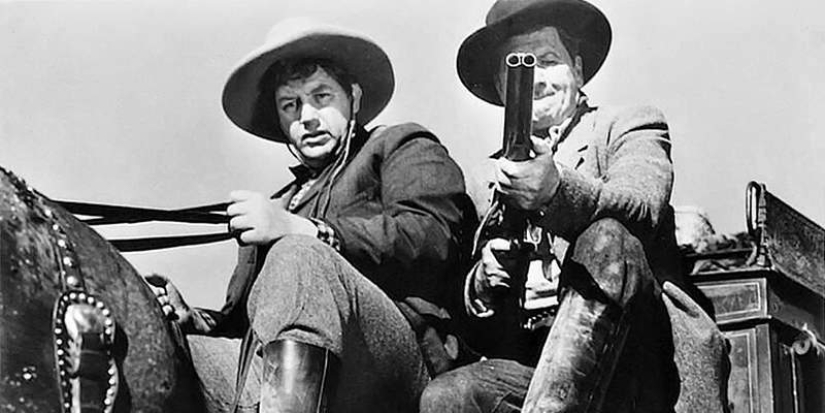
Riding shotgun
If you face in the translation with the expression "riding shotgun" or "riding shotgun" (for example, it is found in the comic "Transmetropolitan") specifically do not expect that the hero of the movie or book get the shotgun. Or sit astride it. Sometimes the hero and the truth is when something gunshot. In fact, it means just riding next to the driver.
The phrase dates back to the days when the lands of the Wild West stagecoaches traveled. While the trooper ran the crew with gold or cash, his companion kept on hand a shotgun, if necessary, to shoot the robbers or the indigenous population.
Today this expression is used when we want to say that the hero ready to help a friend; no matter firearms or a handkerchief.
In the latter case, distorting the meaning of the statement, the translator definitely will finish to you and a good book. Or movie. It remains only to learn English, to ask Google, or perhaps write about your bad experience with us in the comments.
Keywords: Army catch phrase | Error | Translation
Post News ArticleRecent articles

It's high time to admit that this whole hipster idea has gone too far. The concept has become so popular that even restaurants have ...

There is a perception that people only use 10% of their brain potential. But the heroes of our review, apparently, found a way to ...
Related articles

Tired after a hard day at work? Suffer from autumn depression? Don't know how to entertain yourself in your free time? This ...

From pre-revolutionary times to the present day, an annoying typo in the press was sometimes paid with a career, or even with life. ...

In Slavic languages, there may be up to half of the known and familiar Russian words, but the rest will seem like a sudden surprise ...

New Year's is a time to surprise and delight loved ones not only with gifts but also with a unique presentation of the holiday ...